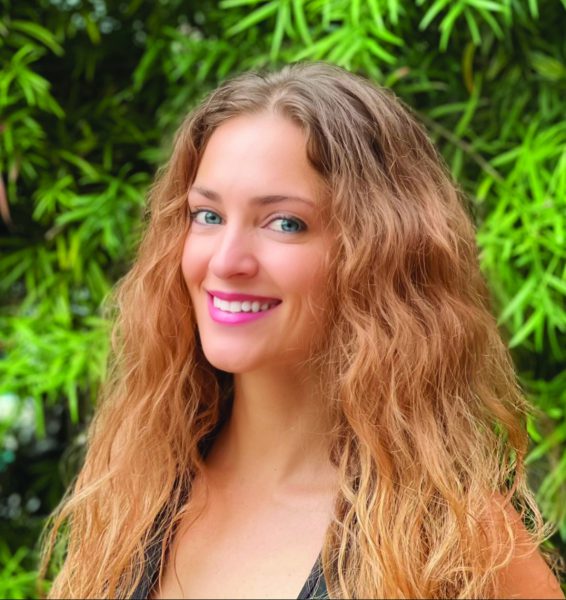By Melissa Harris
 If this were the first day of the college semester and you had registered for my Positive Psychology class, I would ask you to pair up with the person next to you and agree on a definition of happiness.
If this were the first day of the college semester and you had registered for my Positive Psychology class, I would ask you to pair up with the person next to you and agree on a definition of happiness.
This might sound simple, but it isn’t easy. Although we instinctively know what happiness feels like, we live in a culture that has a complex relationship with the concept and what it means to be happy.
To scientifically study something, we have to agree on how we define it. Unlike the straightforwardness of a molecule in chemistry, people studies can get murky if there isn’t consistency in the language we use. This can be particularly problematic when it’s a word commonly used to mean so many things. It is even more difficult when people have strong value judgments associated with the word.
In the U.S., we believe strongly in the pursuit of happiness. It is even famously written into our Declaration of Independence. However, the obtainment of happiness and the role it should play in our life is often controversial. My personal journey in studying happiness academically began with a conversation I had with my beloved grandma while in my early twenties.
I was a single mom, working in a research lab, going to graduate school full-time, and missing my family. I had traveled home for a holiday weekend. I sat my exhausted self on the patio chair next to my grandma. We both watched my young daughter playing in the yard. She was running through a sprinkler and the barn chickens and dogs had joined her. She was howling with laughter as she ran circles in the water with the farm animals.
“I need to play more,” I said, observing the joy pouring out of my child. “All I do is work and study. I don’t even have time for sleep. I’m missing the good stuff. I need to have some fun and enjoy.” I paused, trying to think of the right word. “…happiness.”
Without a breath, my grandma said, “I think you have had plenty of fun, young lady. What you actually need is to be more serious about your life and stop focusing on happiness.”
I knew better than to say it out loud, but I thought it…What is the point of all of this if there isn’t happiness?
While there can be beauty in giving our suffering meaning, we often underestimate and undervalue the power of joy. Despite some of the merits of positive feelings being straightforward, our culture has associated happiness with being disconnected from reality, laziness and even selfishness. My grandma wasn’t alone in thinking that happiness is a sure sign of a misguided and wasteful life.
In reality, scientific studies have shown the following about happy people: They are more successful in their careers, they report greater relationship satisfaction, act more compassionately and enjoy more creativity and enjoy better overall health.
One of the groovy things about this science is that we can measure how happiness tends to drive these things, not the other way around. In other words, much good comes to completion from making happiness a priority. This ongoing column, “Happiness as a Hypothesis” will continue to debunk myths, explore the many benefits of happiness, and illustrate ways to increase our own happiness through choices and behavior.
But first, we need to agree on a definition for happiness.
One of my favorite books, “The How of Happiness” by Sonja Lyubomirsky, defines it like this:
“Happiness refers to the experience of joy, contentment, or positive well-being, combined with a sense that one’s life is good, meaningful, and worthwhile.”
To this day, I hold my grandma as one of the smartest scientists I have had the pleasure of knowing. Perhaps part of her reaction that spring afternoon was her working definition of happiness. If she were still alive, I would love to share Dr. Lyubomirsky’s definition along with the growing science of positive psychology. And more than anything, I would love for her to see the joy that comes from living happiness as a hypothesis.
Melissa decided to bring the happiness classroom to Laguna Beach residents by opening the Positive Psychology and Wellness Lab on PCH. She works one-on-one with clients to help them implement the science of happiness in their own lives. When she isn’t teaching or in the lab, she practices creating happiness by being in nature, sharing time with her family and hanging from aerial silks.




